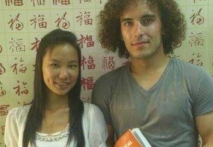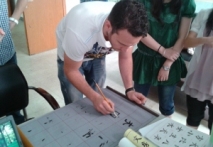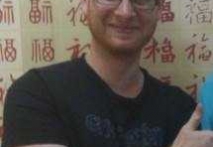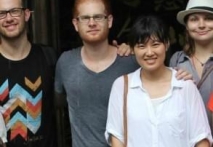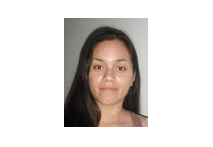Latest News
- Wuxi's Nanchang Street--a historic cultural district that combines classical charm, delicious food, and fun activities
- chinese study
- lastest courses
- Business Assistance/International Consortium of Stem Cell Research
- Foreigner's view of Jiangsu -Changzhou Jintan starts
- estimonials for Our new French Internship student Anais 企业表扬信
- The Double Seventh Festival in China Introduction
- Chinese Proficiency Test (HSK)
- China University Mining and Technology
- Wuxi Library
Students Say
Mandarin Student Zack
Mandarin Education School is a great place to learn Chinese and Chinese Culture.I've learned a lot in this school, my Chine...
Learn Chinese Travel China
If you want to learn Chinese and also discover China, Mandarin Education organize the most funny and cultural study tour.
The...
suzhou Mandarin Jude
I am Jude, I am learning Mandarin in Suzhou Mandarin School,I was learning in Wuxi Mandarin Education too.I like my Chinse Teacher...
chinese class
Improve your reading, speaking and your writing by experiencing our teaching methods,Offer free student Visa.
...
Wuxi Mandarin Jessie
I've learned Chinese for almost 8 years, I can understand what Chinese people say,but when I speak, I feel very uncomfor...
Chinese Internship or Jobs
You are looking for a professional experience abroad? Get the opportunity to discover the Chinese business,Look for an ...
Mandarinedu Student Florent
I love my Wuxi Mandarin Education School. It is the EASY MANDARIN Learning way, I am learning faster than I wanted.My teach...
Mandarin E Learning
Mandarin Education School offers you Online Chinese Courses. It has never been so easier to have Chinese courses ...
Mandarin Student Brad
I am studying Chinese in Mandarin Education School. I can speak quit good Chinese and talk to Chinese people by myself. Thank...
Wuxi Mandarin edu. Student Jennifer
I love learning Chinese in Mandarin Education School.That's a great place to learn and make friends.
...
Add Our School Official
to get more informations

0086 1866 1199 988
0086 510-81151808
Sandy.Swun
519988808
Mandarin Education School
Room 405, 4 Fl,Building No.8,
Maoye Business Center,
Chang jiang No.1,
New district , Wuxi City , China
趟,量词,表示往返的次数。例如:
(1)上个月我去了趟北京动物园,那里约有500多种动物,
(2)我要出趟差,你能帮我照顾一下我的小狗吗?
趟--次
相同点:
两者都表示动作的量,用于来回走动的动作,如“来、去、走、跑、接、送”等,经常可以互换。例如:
今年寒假我去广东玩儿了一趟/次。
不同点:
1、表示来回走动的动作的时候,“趟”表示“一去一回”,只用于来回走动的动作行为;而“次”表示动作重复的数量,并不强调“一去一回”这样的过程。例:
(1)回来的路上我顺便去了趟银行。
(2)小时候,爷爷差不多每个月都带我去看一次京剧。
2、“次”还可以其他行为的数量,如“问、说、看、讨论”等;“趟”没有此用法。例如:
(3)我刚才叫了你两次,你都没听到。
3、“趟”还可以用于按时间、路线行驶的公共汽车或火车,相当于“辆”“列”;“次”没有此用法。例如:
(4)附近有好几趟公共汽车都能到我工作的公司。
The measure word“趟”indicates the number of round trips.For example:
(1) I went to Beijing zoo last month.There are about 500 kinds of animals there.
(2) I’m going on a business trip.Can you take care of my puppy?
趟--次
Similarity:
Both indicate the number of times that an action takes place and are often interchangeable.They are used with actions involving coming and going,such as “来”(to come),“去”(to go),“走”(to walk),“跑”(to run),“接”(to pick up),“送”(to see off) ,etc.
I went to guangdong this winter vacation.
Differences:
1. In case of that an action takes place,“趟”indicates a trip back and forth,only used for actions behaviors that involve coming and going, while“次”indicates the number of times that an action, not necessarily a back-and-forth one,repeats.
(1) I dropped by the bank on my way back.
(2) When i was young, my grandfather took me to see Beijing Opera almost once a month.
2. “次”can be used for verbs indicating other behaviors, such as“问”(to ask),“说”(to say),“看”(to look)and“讨论”(to discuss),while“趟”has no such usage.
(3) I just called you twice,but you didn’t hear me.
3. “趟”can also be used for buses or trains that travel at a scheduled time on a fixed route,similar to “辆”(a measure word for vehicles)and“列”(a measure word for trains),while“次”cannot be used this way.
(4) There are several buses near the office where i work.
趟,양사,왕복횟수를 나타내다.예를글면:
(1) 지난달에 나는 베이징 동물원에 갔었는데 그곳에는 약 500여종의 동물들이 있었다.
(2) 나는 출장을 가려고 하는데,너는 나의 강아지를 좀 돌봐 줄 수 있니?
趟--次
동일점:
둘 다 움직임의 양을 표시하며,왔다 갔다 하는 동작에 사용됩니다.예를들면 “来”(오다),“去”(가다),“走”(걷다),“跑”(달리다),“接”(받다),“送”(보내다)등,자주 호환이 가능합니다.예:
이번 겨울 방학에 나는 관동에 한 번 놀러갔다.
차이점:
1. 왔다 갔다 하는 동작의 양 이 이미를 표시할 때, “趟”는 “한 번 가다왔다”를 표시하고 왔다갔다하는 동작에만 사용된다.하지만 “次”는 동작이 중복되는 수량을 표시하다. “한 번 가다왔다”이라는 과정은 강조되지 않는다.
(1) 돌아오는 길에 나는 은행에 들렀다.
(2) 어릴 때 할아버지는 거의 매달 나를 데리고 경극을 보러 가셨어요.
2. “次”도 다른 행위의 개수를 나타낼 수 있습니다.예를들면 “问”(묻다),“说”(말하다),“看”(보다) 와“讨论”(토론하다)등;하지만 “趟”는 이런 용번가 없습니다.예:
(3) 내가 방금 너를 두 번이 불렀는데,너는 다 듣지 못했다.
3. “趟”도 시간,노선으로 운행하는 버스나 기차에 이용할 수 있다,“辆”,“列”와 상당하다.예를들면:
(4) 근처에는 내가 일하는 회사까지 버스가 여러 번 온다.
